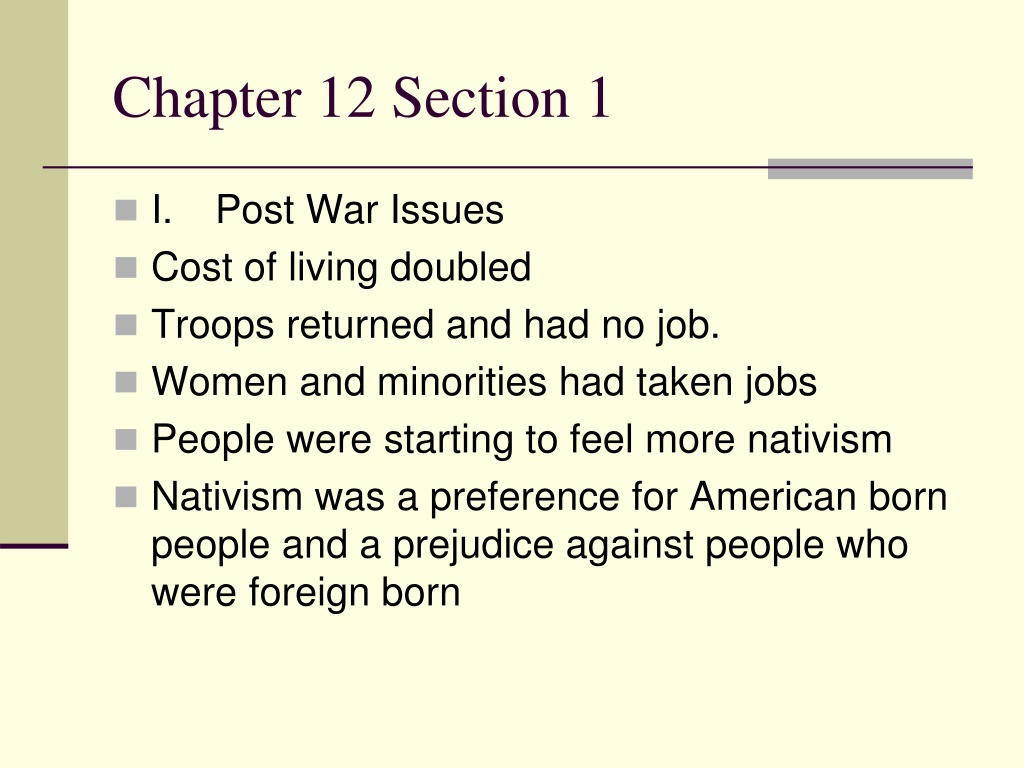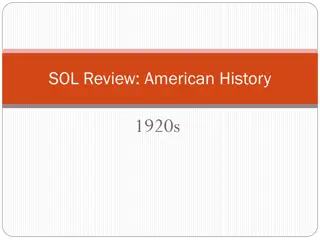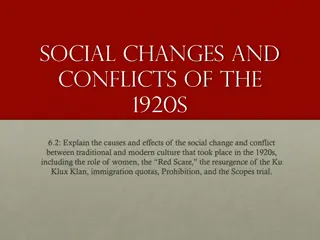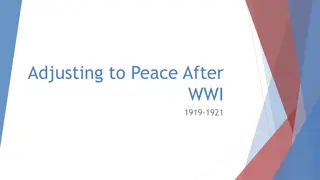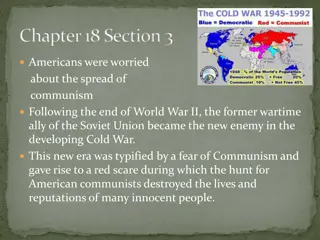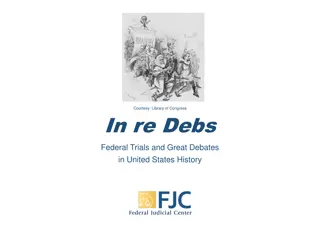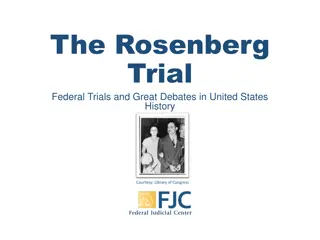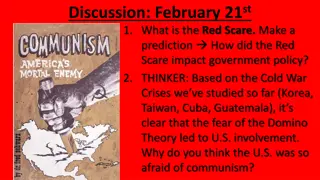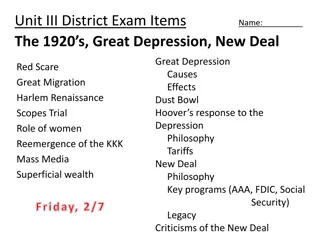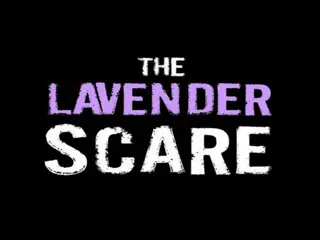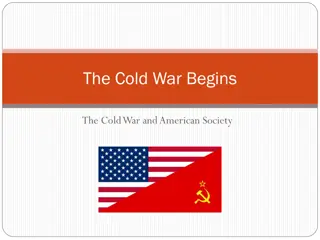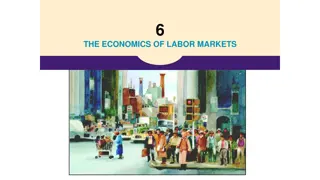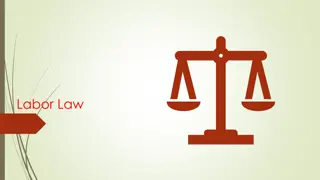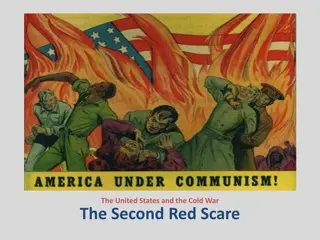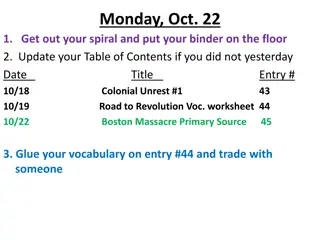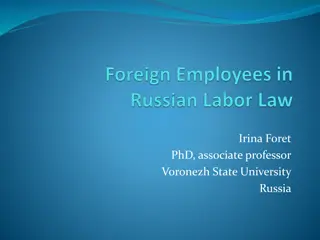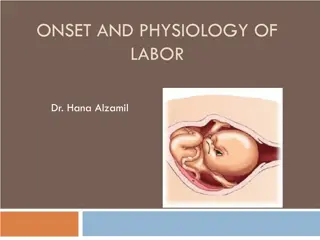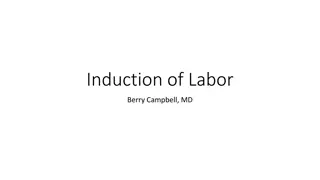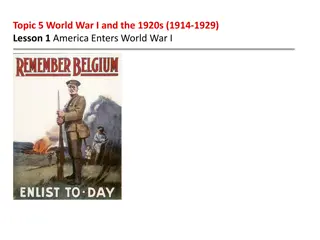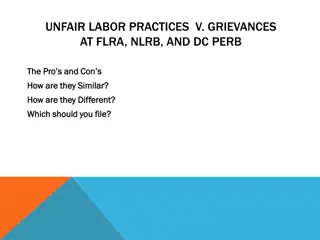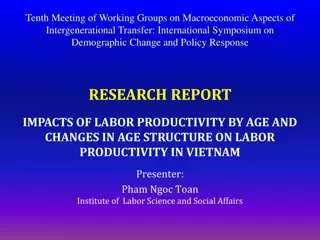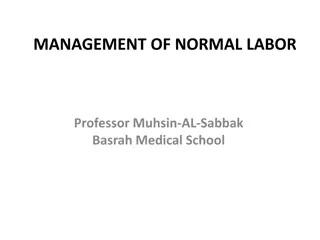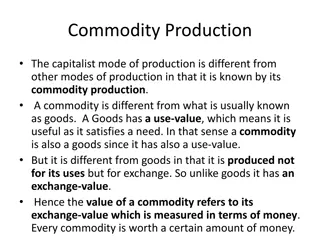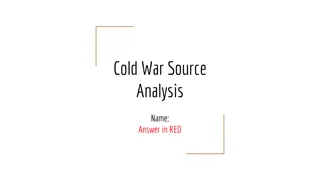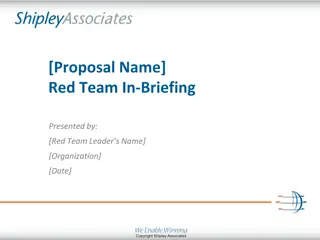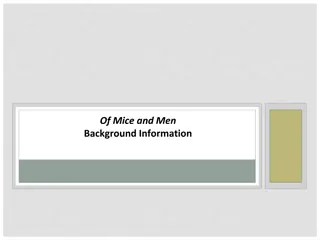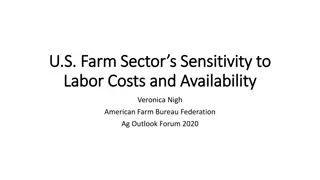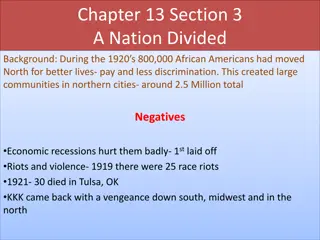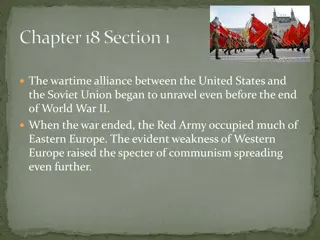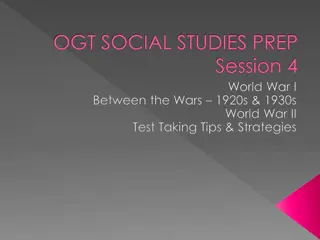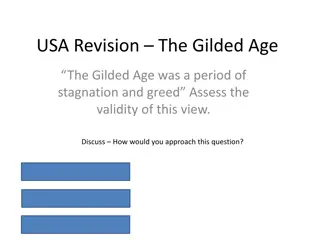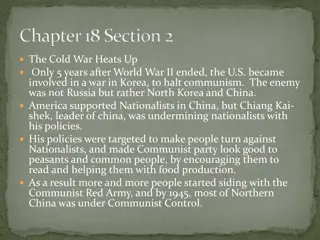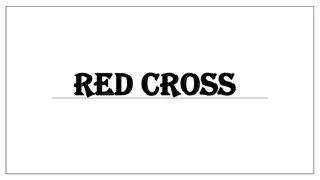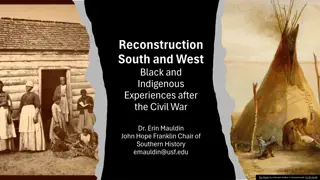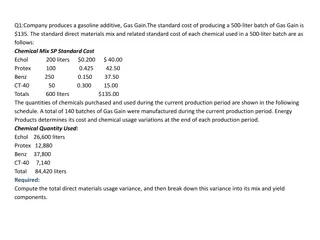Post-War Issues: Nativism, Red Scare, and Labor Unrest in the 1920s
The 1920s saw a rise in nativism, with Americans feeling threatened by job competition from women and minorities. The era was marked by the Red Scare, fueled by fears of communism spreading globally, leading to the formation of the Ku Klux Klan. The Quota System was implemented to limit immigration, while labor unrest resulted in over 3000 strikes, with workers advocating for better conditions. The period was a time of social upheaval and tension as the nation grappled with post-war challenges.
Download Presentation

Please find below an Image/Link to download the presentation.
The content on the website is provided AS IS for your information and personal use only. It may not be sold, licensed, or shared on other websites without obtaining consent from the author. Download presentation by click this link. If you encounter any issues during the download, it is possible that the publisher has removed the file from their server.
E N D
Presentation Transcript
Chapter 12 Section 1 I. Cost of living doubled Troops returned and had no job. Women and minorities had taken jobs People were starting to feel more nativism Nativism was a preference for American born people and a prejudice against people who were foreign born Post War Issues
Chapter 12 Section 1 Red Scare Fear of Communism taking over the world Isolationism-Pulling away from other countries in the world. Fear of communism spreading. Communism-single party system that was ruled by a dictator. Communist party formed in U.S.(Thought to be about 70,000 members) 1919 Hoover assigned to hunt down communists and anarchists (people who refuse government) No evidence found
Chapter 12 Section 1 Citizens wanted Limited Immigration (Wanted to keep America for Americans) Ku Klux Klan formed as a result of Red Scare and anti immigrant feelings. Used these reasons to harass any group that was not like themselves. Also believed in keeping blacks in their place Paid to bring in recruits By end of 1920 s KKK had lost most of its power
Chapter 12 Section 1 II. The Quota System Gave max. to number of Immigrants from each country in 1921 Amended in 1924 2% of Immigrants European Reduced # of people immigrating to U.S. to 150,000 a year Prohibited any Japanese Immigration Did not apply to Western Hem.
Chapter 12 Section 1 Labor unrest (workers and management disagree) More than 3000 strikes Management tried to convince public that strikes were communistic Strikes 1.) Boston Police Strike ( Couldn t get raise or join unions) Steel and Mill Strike ( Workers wanted 8 hour day and got it Coal Miners Strike (Were in Unions and Union members went on strike for shorter days.) Court order sent workers back to work. 27% Increase in wages but not shorter work day. Union membership dropping.
Chapter 12 Section 1 Quiz 1.) What did the Quota system do? a.) It limited the maximum number of Immigrants from each country b.) It limited the amount of jobs each business could give for each nationality c.) It limited the maximum amount of hours a person could work a week 6.) Name the 3 big strikes a.) Boston Police, Steel and Mill and Coal Miners strikes b.) Boston Tea Party Strike, Firemen Union Strike and Teachers Union strike c.) Better Business Strike, Civil Rights Strike, Women s Suffrage Strike 2.) How much did the Quota system affect immigration? a.) It reduced immigration to 1,500 a year b.) It reduced immigration to 150,000 a year c.) It reduced immigration to 15,000 a year 7.) Why did the Boston Police strike? a.) They couldn t use weapons b.) They couldn t join Unions or get a raise c.) Women were not allowed on the force 8.) What did the Steel Mill workers want when they went on strike? 3.) What nationality could not immigrate to the U.S. a.) German b.) Chinese c.) Japanese a.) They wanted to work longer hours so they could make more money b.) They did not want to allow immigrants on the work force c.) They wanted 8 hour work day 4.) How many Labor strikes were there during this period? a.) more than 3000 b.) Around 300 c.) Less than 3000 9.) Why did they Coal Miners strike? a.) They wanted shorter work days b.) They wanted to work longer hours so they could make more money c.) They did not want to allow immigrants on the work force 5.) What did management try to make the public feel about strikes? a.) That they were healthy business practices b.) That they were communistic c.) That they were democratic 10.) What sent workers back to work when they went on strike? a.) Court Orders b.) Presidential Veto c.) Workers usually gave in.
Chapter 12 Section 1 Quiz cont. 11.) What happened to the cost of living after World War 1? a.) It doubled b.) It stayed the same c.) It lowered 16.) What is the term used to describe the favoring of native born Americans? a.) Nativism b.) Isolationism c.) Communism 12.) What happened to a lot of troops when they returned from the war? a.) They felt entitled to not have to work due to their service b.) They all found jobs due to them being so well liked c.) Their jobs had been taken 17.) What is a single party system of government that is ruled by a dictator? a.) Democracy b.) Federalism c.) Communism 18.) What did laborers get out of the three major strikes? a.) Shorter work day b.) Increase in wages c.) Longer work day 13.) What was the Red Scare? a.) Fear of Communism taking over the world b.) Fear of Democracy taking over the world. c.) Fear of Labor Strikes throwing the economy into a depression. 19.) What did citizens think about immigration during this period? a.) They wanted to increase immigration b.) They wanted to keep immigration unlimited c.) They wanted to limit immigration 14.) What was the KKK when it was originally formed? a.) A group that hated and harassed any group that chose to go on strike b.) A group that hated and harassed any group that was not like themselves c.) A group that tried to spread Communism 20.) What term is used for pulling away from other countries in the world? a.) Isolationism b.) Communism c.) Prohibition 15.) What decade did the KKK lose most of its power? a.) 1940 s b.) 1920 s c.) 1820 s
